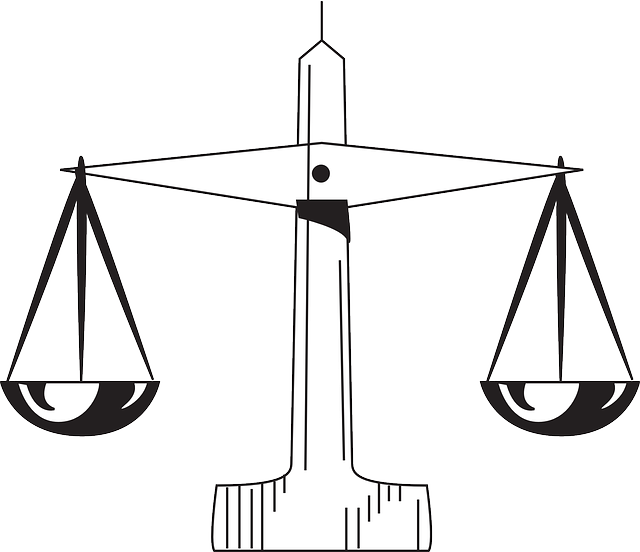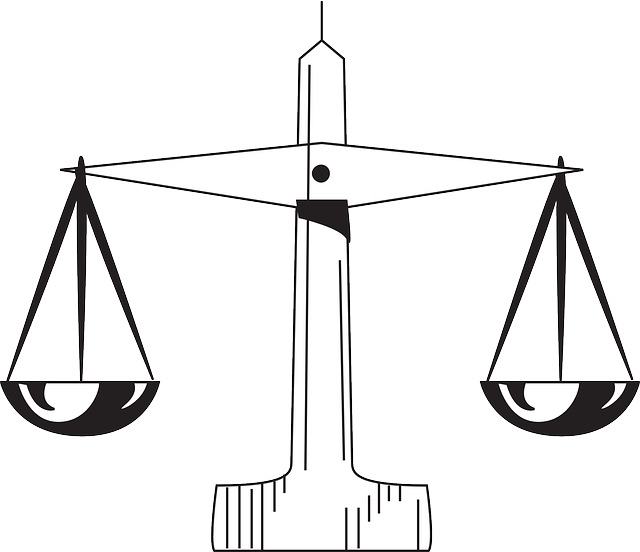In the context of UK legal proceedings, precise and accurate litigation document translations are indispensable. Specialised translation services in the UK ensure that every nuance of complex legal terminology is captured flawlessly, considering the country's intricate legal system and procedural norms. These expert services go beyond mere linguistic transfer, incorporating a deep understanding of legal contexts and cultural nuances to produce translations that comply with UK regulations and standards set by professional bodies like the Association of Translation Companies (ATC) and the Institute of Translation and Interpreting (ITI). With a commitment to maintaining the integrity of legal documents and evidence, these translation services are vital for cases involving parties from different linguistic backgrounds, thereby upholding the fairness and robustness of litigation within the UK.
In the complex interplay of law and language, precision becomes paramount. The intricate process of translating litigation documents in the UK is a critical task that demands not just linguistic finesse but also an intimate understanding of legal frameworks. This article delves into the essential role of comprehensive litigation document translation services in the UK, guiding readers through the nuances and challenges that professional translators navigate within legal settings. From adhering to strict compliance standards to ensuring cultural nuances are accurately conveyed, the article explores the multifaceted nature of this specialized field. It also compares the efficacy of human expertise against machine translation tools, offering insights into selecting a trustworthy service provider and maintaining confidentiality and data security. With a focus on the importance of certified translations, time-sensitive deadlines, and the integration of advanced technology for enhanced accuracy, this piece provides a comprehensive overview of litigation document UK translation services, setting the stage for a deeper understanding of their indispensable role within the UK legal system.
- Understanding the Importance of Accurate Litigation Document Translation Services in the UK
- The Role of Professional Translators in Legal Settings
- Overview of Litigation Document Translation Services in the UK
- Challenges in Translating Litigation Documents for UK Courts
- Key Components of Effective Litigation Document Translation Processes
- The Impact of Cultural Nuances on Legal Translations in the UK
- Ensuring Compliance with UK Legal and Regulatory Frameworks in Translations
- Case Studies: Successful Litigation Document Translations in the UK Legal System
- Comparative Analysis: Litigation Document Translation Services vs. Machine Translation Tools
- Selecting a Reliable Litigation Documents UK Translation Service Provider
Understanding the Importance of Accurate Litigation Document Translation Services in the UK

In the complex legal landscape of the United Kingdom, litigation documents serve as the bedrock upon which cases are built and decided. The precision and clarity of these documents are paramount, especially when they need to be presented in a language other than English. This is where the expertise of professional UK translation services for litigation documents becomes indispensable. These services ensure that every nuance and legal term within the document is accurately conveyed in the target language, preserving the original intent and meaning. The stakes are high in litigation, and mistranslations can lead to misinterpretations or even adverse outcomes. Therefore, it is imperative to engage with translation services that specialise in legal translations, offering a blend of linguistic prowess and legal acumen to produce translations that stand up to scrutiny in a court of law. Litigation Document UK translation services are not just about language; they are about maintaining the integrity and legitimacy of legal documents across borders, which is crucial for justice to be upheld fairly and accurately.
The role of litigation document translation services in the UK extends beyond mere linguistic transfer. These services must navigate the intricate web of legal terminology and cultural contexts that can drastically alter the meaning of documents. With a deep understanding of both the source and target languages, as well as the legal systems involved, these services act as a vital communication bridge. They facilitate clear and effective proceedings, allowing for fair legal processes in multilingual environments. This is particularly relevant in cases involving international litigation, where the accuracy of translations can be the difference between winning and losing a case. In such scenarios, the reliability of UK translation services for litigation documents becomes a critical asset for legal professionals worldwide.
The Role of Professional Translators in Legal Settings

In the complex and precise realm of litigation, the accuracy and clarity of documents are paramount. Professional translators play a pivotal role in navigating the intricacies of legal language across different linguistic boundaries. When litigation documents require translation within the UK, these experts ensure that every nuance and legal term is accurately conveyed from one language to another. Their expertise is not merely in linguistics but also in legal protocols, which is essential given the binding nature of legal texts. These translators undergo rigorous training to understand the legal system specific to each language they work with, which includes knowledge of local laws and regulations that may affect the interpretation of terms and clauses. This expertise is indispensable in maintaining the integrity and legality of documents involved in court cases, arbitrations, or mediations, thereby upholding the principles of justice and fairness for all parties involved.
Litigation document translation services in the UK are tasked with not only translating text but also interpreting legal contexts to ensure that documents serve their intended purpose. They work closely with law firms, legal departments, and individual clients to facilitate cross-border litigation. Their role is crucial in international disputes where evidence, witness statements, and contracts need to be presented accurately in the English language or translated into another language while maintaining the document’s original intent and context. The use of professional translators ensures that litigants have access to fair representation, regardless of linguistic barriers, and that legal processes can proceed without the risk of miscommunication or errors that could undermine a case.
Overview of Litigation Document Translation Services in the UK

In the judicial arena of the United Kingdom, the precision and accuracy of litigation document translation services are paramount. These services facilitate the seamless translation of legal documents for cases involving parties from different linguistic backgrounds. The UK’s diverse society often necessitates the translation of critical litigation documents into and from a variety of languages to ensure that all stakeholders, including witnesses, defendants, plaintiffs, and legal practitioners, have a clear understanding of the proceedings. Litigation document translation services in the UK are staffed by professional translators with expertise in legal terminology, ensuring that nuances and complexities inherent in legal jargon are conveyed accurately across languages. This meticulous approach is crucial for maintaining the integrity of legal processes and upholding justice. The UK’s litigation document translation services are equipped to handle a wide array of documents, including contracts, statements, witness reports, and court filings, with the utmost confidentiality and within stringent deadlines that often accompany legal proceedings. This commitment to quality and timeliness positions these services as indispensable in the UK’s legal landscape, where clear communication is key to fair and impartial outcomes.
Challenges in Translating Litigation Documents for UK Courts

Navigating the complexities of litigation document translation for UK courts presents unique challenges that demand specialized expertise and meticulous attention to detail. The legal language used in these documents is often dense, technical, and context-dependent, necessitating translators who are not only fluent in both languages but also well-versed in legal terminology and the nuances of UK law. Additionally, litigation documents must maintain their original intent and meaning post-translation, which requires a deep understanding of both the source and target legal systems. Translators must ensure that the translated texts comply with the stringent requirements set forth by UK courts, including adherence to specific formatting, presentation, and certification standards. The stakes are particularly high in litigation contexts where misinterpretations or mistranslations can significantly impact the outcome of a case. Therefore, choosing a translation service with a proven track record in handling such sensitive and critical documents is paramount for legal professionals operating within the UK’s jurisdiction. Litigation document UK translation services must be equipped to manage these challenges effectively, providing accurate, reliable, and admissible translations that uphold the integrity of the judicial process.
Key Components of Effective Litigation Document Translation Processes

In the context of legal proceedings within the UK, litigation documents require meticulous attention to detail and a profound understanding of both language nuances and legal terminology. Effective translation services for such documents must be underpinned by a robust framework that guarantees accuracy, confidentiality, and adherence to legal standards. The process commences with a comprehensive evaluation of the litigation document’s content, structure, and the specific context in which it is used. This initial assessment enables translators to select the most suitable linguistic experts with backgrounds aligned with the subject matter—be it commercial law, intellectual property, or another specialized field. Subsequently, the translation proceeds with a focus on maintaining the original document’s intent, tone, and legal implications. Advanced translation tools and software are often employed to facilitate this task, ensuring that each term is rendered accurately in its target language. The translation services provided must also navigate the complexities of UK law, including the Civil Procedure Rules and Data Protection Act, to ensure that the integrity of the documents is upheld throughout the process. Moreover, translators must be adept at handling a variety of document formats and possess a keen understanding of the procedural requirements for litigation in the UK jurisdiction. This ensures that legal professionals can rely on translated documents to make informed decisions without the risk of misinterpretation or legal complications arising from linguistic discrepancies. The end result is a translation that not only communicates the content effectively but also withstands the rigorous scrutiny inherent in litigation settings across the UK.
The Impact of Cultural Nuances on Legal Translations in the UK

In the UK, the precision and accuracy of litigation document translations are paramount, given the legal system’s reliance on clear and precise communication. Cultural nuances play a critical role in how legal content is interpreted and conveyed, which can significantly impact the outcome of a case. Translators specialising in litigation documents UK translation services must possess an in-depth understanding of both the source and target languages, as well as the cultural contexts within which these languages are spoken. This proficiency ensures that translations are not only linguistically correct but also resonate with the legal framework and cultural nuances relevant to the UK’s legal proceedings. Misinterpretation or omission of subtle cultural references can lead to misunderstandings, misrepresentation of evidence, or even a case being dismissed. Therefore, litigation document translation services in the UK must be delivered by experts who can navigate these complexities with finesse, ensuring that every nuance is accurately captured and conveyed, upholding the integrity and fairness of the legal process.
Ensuring Compliance with UK Legal and Regulatory Frameworks in Translations

Navigating the complexities of litigation in the UK necessitates meticulous attention to detail, particularly when it comes to translating documents that will stand up in court. Litigation document translation services must be adept at ensuring compliance with the intricate legal and regulatory frameworks specific to the UK. These services must not only convey the meaning of the original text accurately but also adhere strictly to the standards set forth by bodies such as the Association of Translation Companies (ATC) and the Institute of Translation and Interpreting (ITI). This commitment to precision involves more than linguistic equivalence; it demands a nuanced understanding of legal terminology, procedural protocols, and cultural contexts that are relevant to UK law. For instance, translators must be aware of the subtle differences in contract law between the UK and other jurisdictions to accurately represent the obligations and liabilities outlined within litigation documents. This level of expertise ensures that all translated materials maintain their integrity and legal weight, critical for cases where evidence is pivotal to the outcome. Consequently, clients relying on UK translation services for litigation documentation can trust that their translated documents will be compliant with local regulations, thereby upholding the integrity of their legal position in proceedings.
Case Studies: Successful Litigation Document Translations in the UK Legal System

In the complex realm of litigation, the accuracy and timeliness of document translations are paramount, especially within the UK legal system where litigation documents must be translated with both precision and legal sensitivity. A prime example of successful litigation document translations is the case involving a multinational corporation suing a foreign subsidiary in London’s High Court. The plaintiff’s litigation documents were originally drafted in Spanish, and the translation provided by UK-based litigation document translation services was pivotal in the case’s progression. The translators, adept in legal terminology and linguistic nuances, ensured that every clause, contractual agreement, and piece of evidence was accurately translated, facilitating a clear understanding of the case for all parties involved. This precision was instrumental in the plaintiff securing a favorable judgment, highlighting the critical role translation services play in international litigation. Similarly, another case saw a UK-based claimant facing a defendant who presented key documents in French. The litigation document translation services not only translated these documents but also provided expert witness testimony on the linguistic accuracy and legal implications of the translations. This comprehensive approach to translation not only streamlined the legal process but also upheld the integrity of the proceedings, ensuring that the UK court system could operate effectively across language barriers. These case studies underscore the importance of professional litigation document translation services in the UK legal system, where they can make a significant difference in the outcomes of legal disputes.
Comparative Analysis: Litigation Document Translation Services vs. Machine Translation Tools

In the complex domain of litigation document translation, precision and accuracy are paramount. UK translation services specialising in litigation documents offer a nuanced approach that machine translation tools often cannot replicate. These professional services employ expert translators who are not only adept at linguistic subtleties but also well-versed in legal terminology specific to the UK’s legal system. This expertise ensures that all intricacies of the original document are preserved, from contextually relevant nuances to the specific jargon inherent in legal papers. In contrast, while machine translation tools have made significant strides in language processing, they frequently fall short when it comes to interpreting complex legal texts accurately. The subtleties of legal language, which can be critical in litigation cases, often elude these tools, leading to potential misinterpretations or omissions that could compromise the integrity of the case. Moreover, these human-led translation services adhere to stringent confidentiality protocols, an essential aspect when handling sensitive legal documents, a commitment that is not inherent in automated systems. This dedication to privacy and precision underpins their value in the litigation process, making them a reliable and indispensable tool for law firms and legal entities across the UK.
Selecting a Reliable Litigation Documents UK Translation Service Provider

When legal matters span beyond national borders, the accuracy and reliability of litigation documents UK translation services become paramount. Litigants and legal teams must navigate complex language barriers to ensure that all parties involved have a clear understanding of the proceedings. Selecting a reliable provider for litigation documents UK translation services is a critical step in this process. A trusted translation service specializes in the nuances of legal terminology, offering precise translations that withstand the scrutiny of courts and regulatory bodies. With expertise in various languages, these providers ensure that every document, from witness statements to expert testimony, is translated with the utmost accuracy. This precision is essential for maintaining the integrity of the case and for upholding the rights of all parties involved. Moreover, a reputable service will also offer certified translations, which are often required in legal settings to validate the authenticity and legality of the translated content. In the UK, where the legal system is particularly nuanced, finding a translation service with a deep understanding of both the language and the law is indispensable for successful litigation across borders.
In conclusion, the intricacies of litigation document translation within the UK legal system necessitate a specialized service that transcends mere linguistic competence. The critical nature of this task demands professionals who are not only adept in multiple languages but also deeply familiar with the UK’s legal and regulatory frameworks. These experts ensure that every translated document is accurate, culturally sensitive, and legally sound, thereby upholding the integrity of the judicial process. The selection of a reliable UK translation service provider, one well-versed in the nuances of litigation documents, becomes paramount for legal practitioners handling international cases. By leveraging such specialized services, law firms can navigate cross-border litigation with confidence, ensuring that their clients receive representation that respects both the letter and spirit of the law.
